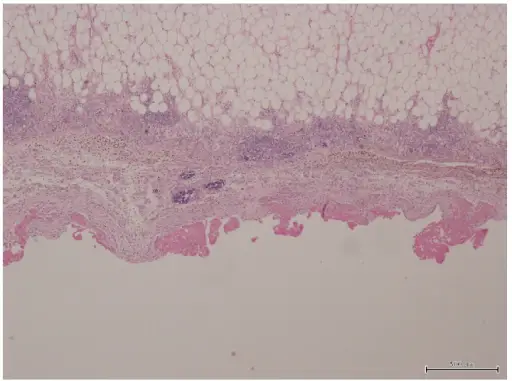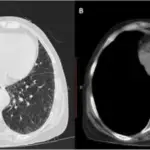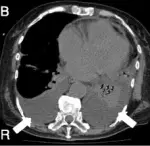Pericarditis is inflammation of the pericardium.
What is the Pathology of Pericarditis?
Pericarditis pathology is characterized by infiltration of polymorphonuclear leukocytes and pericardial vascularization. Manifestation of fibrinous reaction with exudates and adhesion is frequently noted.
How does Pericarditis Present?
Pericarditis presents as chest pain that is precordial/retrosternal that radiates to trapezius ridge, neck, shoulder, or arm. It is a pleuritic pain that is worse on inspiration, when lying flat, or with movement and relieved when leaning forward or with sitting. Associated features include fever, dyspnea, cough, dysphagia and weight loss.
How is Pericarditis Diagnosed?
Pericarditis diagnosis include electrocardiogram, echocardiography and chest x-ray, as well as inflammation and cardiac markers.
How is Pericarditis Treated?
Pericarditis treatment is symptomatic and based on causation. Pain relievers, colchicine, corticosteroids are used. For bacterial infection, antibiotics and drainage is used. Surgery may also be performed such as pericardiocentesis and pericardiectomy.
What is the Prognosis of Pericarditis?
Pericarditis prognosis is good with most post-myocardial infarction cases having a benign course.



